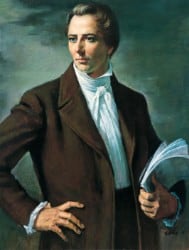
“At the first organization in heaven we were all present and saw the Savior chosen and appointed, and the plan of salvation made and we sanctioned it.”
| The Words of Joseph Smith
LDS Quotes on The Plan of Salvation

“At the first organization in heaven we were all present and saw the Savior chosen and appointed, and the plan of salvation made and we sanctioned it.”
| The Words of Joseph Smith

“God himself, finding he was in the midst of spirits and glory, . . . saw proper to institute laws whereby the rest could have a privilege to advance like himself.”
| Teachings, 354.

“The head of the Gods called council of the Gods; and they came together and concocted a plan to create the world and people it.”
| Joseph Smith, Teachings, 349
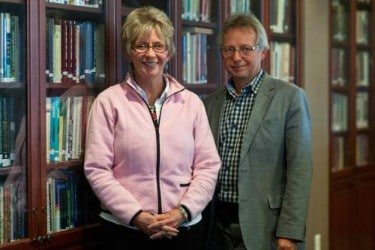
“Sin and death are not the beginning of the human saga; divine parentage and a planned destiny are. Christ’s central purpose from the beginning was not to correct an Adamic misstep, but to draw us further into a world of joyful sociality. His voluntary mission was not to take us back to an original condition, but to move us forward — from primeval wholeness (‘whole from the foundation of the world’) to a more abundant existence (‘added upon’).”
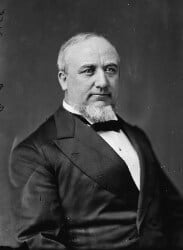
“There is not one of us that He has not desired to save, and that He has not devised means to save.”
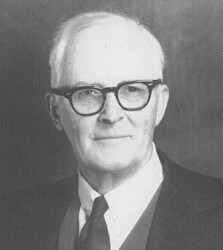
“We recognize what is lovely because we have seen it somewhere else, and as we walk through the world, we are constantly on the watch for it with a kind of nostalgia, so that when we see an object or a person that pleases us, it is like recognizing an old friend; it hits us in the solar plexus, and we need no measuring or lecturing to tell us that it is indeed quite perfect. It is something we have long been looking for, something we have seen in another world, memories of how things should be.”
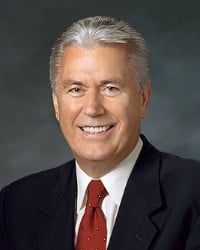
“Not all will follow the map [Heavenly Father has given us]. They may look at it. They may think it is reasonable, perhaps even true. But they do not follow the divine directions. Many believe that any road will take them to a ‘happily ever after.’ Some may even become angry when others who know the way try to help and tell them. They suppose that such advice is outdated, irrelevant, out of touch with modern life. Sisters, they suppose wrong.”
| "Your Happily Ever After," Ensign, May 2010
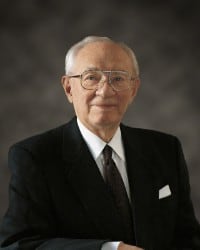
Our lives are the only meaningful expression of what we believe and in Whom we believe. And the only real wealth, for any of us, lies in our faith.

“For God is not merely mending, not simply restoring a status quo. Redeemed humanity is to be something more glorious than unfallen humanity would have been, more glorious than any unfallen race now is. . . . And this super-added glory will, with true vicariousness, exalt all creatures.”
| The Grand Miracle

“God has brought us together as families to bring to pass His eternal purposes. We are part of this plan in this marriage relationship. Let us love and respect and honor one another. We can do it, and we will be the better for it.”
| Stand a Little Taller

A man is saved no faster than he gains knowledge.
| Discourse, 10 April 1842, as Reported by Wilford Woodruff

“The problem of reconciling human suffering with the existence of a God who loves, is only insoluble so long as we attach trivial meaning to the word love…What we would here and now call our ‘happiness’ is not the end God chiefly has in view; but when we are such as He can love without impediment, we shall in fact be happy.”
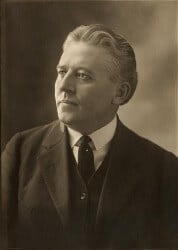
“In other words, that Jesus Christ, under the direction of His Father, was the organizer and builder of this world; that out of the elements that existed in space, He, the great Master, compounded, produced and materialized this substantial world upon which you and I live; that we are indebted to Him, and to our Father in heaven, for this life that we are enjoying, the bodies that we have, the beautiful world that we inhabit. We sometimes wonder where our heaven will be, that is, the people of the world wonder. We Latter-day Saints have no reason to doubt where our heaven will be, for the Lord has made known to us, that this splendid world that has been provided for us will ultimately be redeemed, having obeyed the laws of its being, and become celestialized, the home of celestial beings; so that if we shall ever come into heaven, or heavenly conditions, it will be, ultimately, upon this redeemed world. Jesus Christ has been the organizer and the builder of it, possessed with power to do all that.”
| Conference Report, April 1914

“I feel certain that, as premortal spirits learning of the plan of salvation, we not only beheld and adored but also shouted for joy when he voluntarily and humbly offered himself as the Savior of the world. In five of the most profound words ever uttered, he meekly said, “Here am I, send me.”
| "Oh, Come, Let Us Adore Him — and the Plan!"

“Now I wish to mention another form of abuse that has been much publicized in the media. It is the sordid and evil abuse of children by adults, usually men. Such abuse is not new. There is evidence to indicate that it goes back through the ages. It is a most despicable and tragic and terrible thing. I regret to say that there has been some very limited expression of this monstrous evil among us. It is something that cannot be countenanced or tolerated. The Lord Himself said, “But whoso shall offend one of these little ones which believe in me, it were better for him that a millstone were hanged about his neck, and that he were drowned in the depth of the sea” (Matthew 18:6).”
| “Personal Worthiness to Exercise the Priesthood,” Ensign, May 2002, p. 54

Hope is one leg of a three-legged stool, together with faith and charity. These three stabilize our lives regardless of the rough or uneven surfaces we might encounter at the time. . . . Hope in our Heavenly Father’s merciful plan of happiness leads to peace, mercy, rejoicing, and gladness. The hope of salvation is like a protective helmet; it is the foundation of our faith and an anchor to our souls.
| “The Infinite Power of Hope,” Ensign, November 2008, pp. 21-24